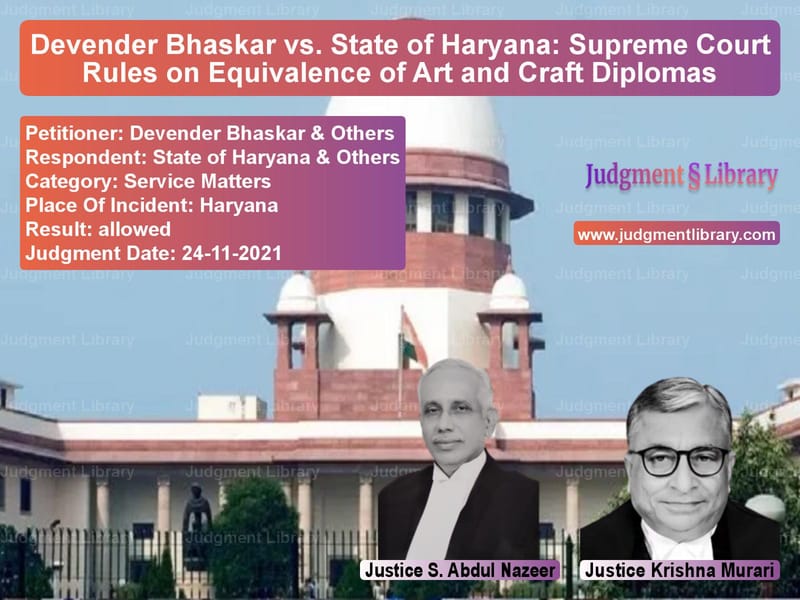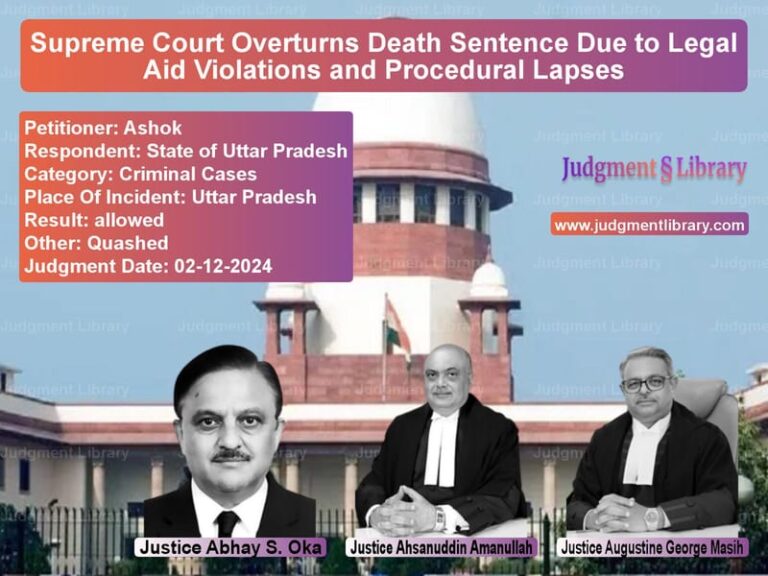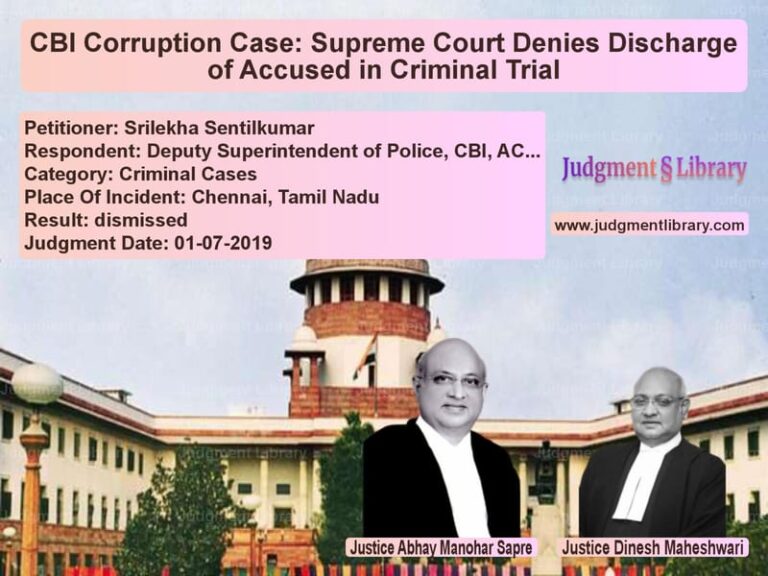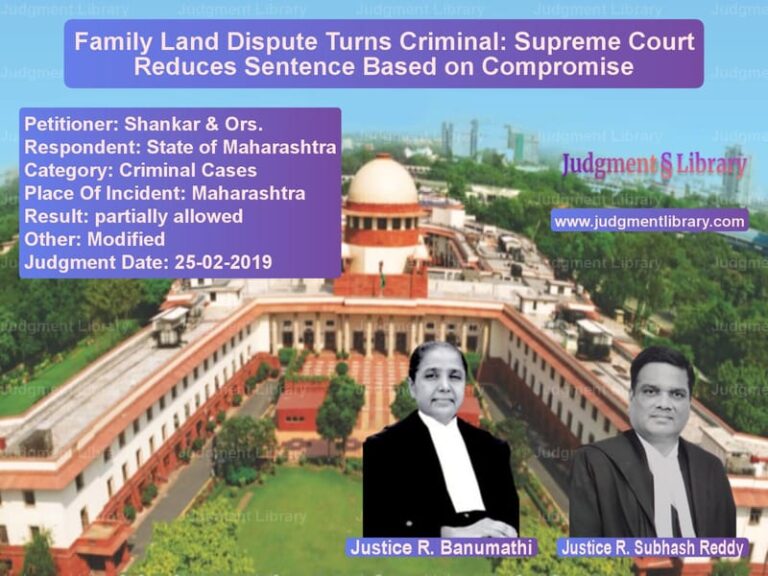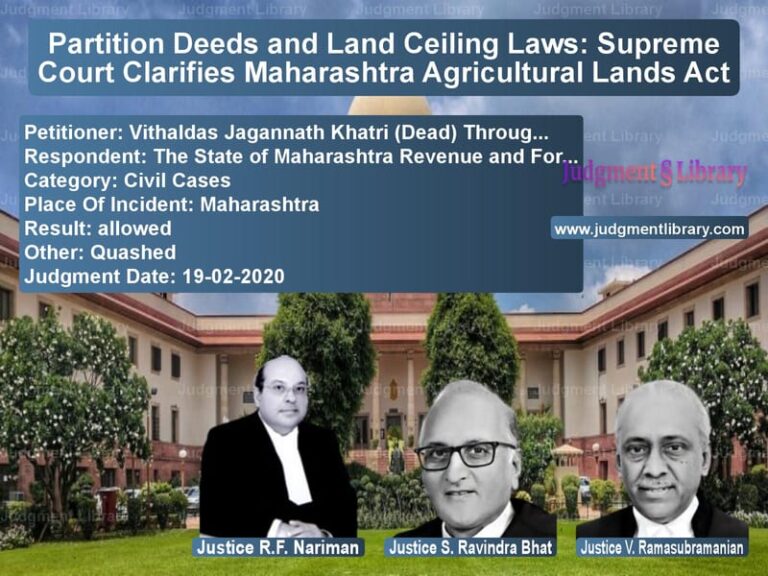Devender Bhaskar vs. State of Haryana: Supreme Court Rules on Equivalence of Art and Craft Diplomas
The case of Devender Bhaskar & Others vs. State of Haryana & Others revolves around the eligibility of candidates for the post of Arts and Crafts teachers in Haryana. The dispute emerged due to differing qualifications—one provided by the Haryana Industrial Training Department and another offered through distance education by Kurukshetra University. The Supreme Court was tasked with determining whether the diploma from Kurukshetra University could be considered equivalent for recruitment purposes.
Background of the Case
In 2006, the Haryana State Staff Selection Commission issued Advertisement No. 6/2006, inviting applications for 816 posts of Arts and Crafts teachers in Haryana. The eligibility criteria specified:
- Matric from the Haryana School Education Board or an equivalent qualification recognized by the Haryana School Education Board.
- Two-year Diploma in Art and Craft examination conducted by the Haryana Industrial Training Department or an equivalent qualification recognized by the Haryana Education Department.
- Knowledge of Hindi up to Matric standard.
Candidates who had obtained their diplomas from Kurukshetra University through distance education applied for the positions but were rejected on the grounds that their qualification was not recognized as equivalent. This led to multiple writ petitions being filed before the Punjab and Haryana High Court.
Arguments by the Petitioners (Kurukshetra University Diploma Holders)
- The petitioners contended that Kurukshetra University was incorporated under the Kurukshetra University Act, 1986, and its distance education qualifications were recognized for government jobs.
- They cited past government communications that confirmed recognition of the Art and Craft diploma from Kurukshetra University.
- The petitioners argued that their diploma covered the same course content as the diploma from the Haryana Industrial Training Department.
Arguments by the Respondents (Haryana Government)
- The Haryana government maintained that only the diploma issued by the Industrial Training and Vocational Education Department was recognized for teacher recruitment.
- They argued that the Kurukshetra University diploma was offered through distance education, whereas the state’s diploma required hands-on training and practical assessments.
- They contended that Art and Craft was a practical subject requiring in-person training, which was not possible in a distance learning format.
Supreme Court’s Observations
The Supreme Court, comprising S. Abdul Nazeer and Krishna Murari, analyzed the equivalency issue and made several key observations:
The Court stated:
“The Art and Craft Course is a highly practical-oriented course and appointee teachers must train students in practical subjects. The diploma from the Haryana Industrial Training Department is obtained through regular classroom teaching, whereas the Kurukshetra University diploma is obtained through distance education. These cannot be considered equivalent.”
The Court further noted that:
- The Haryana Industrial Training Department had explicitly stated that the Kurukshetra University diploma was not recognized for teacher recruitment.
- Equivalence of qualifications is a technical matter and must be decided by the competent educational authorities, not the judiciary.
- The Kurukshetra University had itself clarified in public notices that its diploma in Art and Craft was meant for self-employment and did not guarantee any job.
- Recognition of a course is different from its equivalence. The High Court erred in assuming that mere recognition of the diploma meant it was equivalent for employment purposes.
Key Precedents Cited
The Supreme Court referred to several past judgments on equivalency of qualifications:
- Mohammad Shujat Ali v. Union of India (1975) 3 SCC 76: Equivalence of educational qualifications is a technical matter best decided by expert bodies.
- J. Ranga Swamy v. Government of Andhra Pradesh (1990) 1 SCC 288: Courts should not interfere in determining the relevance of prescribed qualifications for employment.
- State of Rajasthan v. Lata Arun (2002) 6 SCC 252: The appropriate authority must decide prescribed qualifications for recruitment.
- Guru Nanak Dev University v. Sanjay Kumar Katwal (2009) 1 SCC 610: Equivalence of distance education degrees must be expressly stated by the educational authority.
- Zahoor Ahmad Rather v. Sheikh Imtiyaz Ahmad (2019) 2 SCC 404: The State, as an employer, has the right to determine necessary qualifications for recruitment.
Final Judgment
The Supreme Court ruled that:
- The diploma in Art and Craft from Kurukshetra University through distance education was not equivalent to the two-year diploma from the Haryana Industrial Training Department.
- The High Court’s decision granting eligibility to the petitioners was incorrect and was set aside.
- The Haryana government’s decision to reject the petitioners’ applications was upheld.
- The appeal was allowed, and the writ petitions were dismissed.
Impact of the Judgment
The ruling has significant implications for government employment eligibility:
- Authority of Educational Experts: Courts will defer to expert bodies in matters of qualification equivalence.
- Practical vs. Distance Learning: Courses requiring practical training cannot be equated with distance education programs.
- Government’s Right to Set Eligibility: The judgment affirms that the government can set strict eligibility criteria for teacher recruitment.
- Impact on Distance Learning Courses: Universities must clearly state whether their courses are equivalent for government employment.
Conclusion
The Supreme Court’s ruling in Devender Bhaskar vs. State of Haryana clarifies that qualifications obtained through distance education cannot automatically be considered equivalent to hands-on, practical training courses. The decision ensures that educational standards for teacher recruitment remain consistent and that courts do not interfere with expert determinations of equivalence.
Petitioner Name: Devender Bhaskar & Others.Respondent Name: State of Haryana & Others.Judgment By: Justice S. Abdul Nazeer, Justice Krishna Murari.Place Of Incident: Haryana.Judgment Date: 24-11-2021.
Don’t miss out on the full details! Download the complete judgment in PDF format below and gain valuable insights instantly!
Download Judgment: devender-bhaskar-&-o-vs-state-of-haryana-&-o-supreme-court-of-india-judgment-dated-24-11-2021.pdf
Directly Download Judgment: Directly download this Judgment
See all petitions in Recruitment Policies
See all petitions in Public Sector Employees
See all petitions in Education Related Cases
See all petitions in Judgment by S. Abdul Nazeer
See all petitions in Judgment by Krishna Murari
See all petitions in allowed
See all petitions in supreme court of India judgments November 2021
See all petitions in 2021 judgments
See all posts in Service Matters Category
See all allowed petitions in Service Matters Category
See all Dismissed petitions in Service Matters Category
See all partially allowed petitions in Service Matters Category

